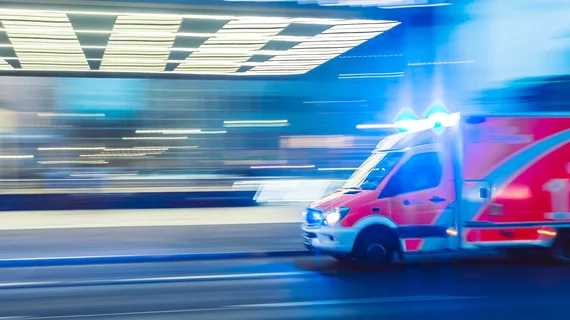Radiologist's 'crucial' actions help save teenager's life following shark attack
A radiologist was among the numerous good Samaritans who helped prevent the terrifying shark attacks along 30A beach in Florida last weekend from turning deadly.
Mohammad Ali, MD, an interventional radiologist who practices in Mississippi, was among those who rendered aid to one of the teenage victims, Lulu Gribbin. Lulu was wading in waist-deep water at the time of the attack.
She and her friend were both bitten by the shark at the same time in the same area while looking for sand dollars at the first sandbar. According to Gribbin’s mother, after seeing the attack, a man ran into the bloody water to get Lulu and her friend.
He and a younger boy brought the girls to shore, where other providers rendered her aid. Lulu’s left hand was bitten off, and she had sustained critical injuries to her right leg, while her friend sustained flesh wounds.
“Once on the shore there were two doctors and two other young women one of whom was a nurse who were all surrounding Lulu,” Gribbin wrote on Facebook. “These individuals put tourniquets on Lulu's wounds, which I believe was crucial to saving Lulu's life.”
Ali, who practices at Baptist Medical Center in Jackson, Mississippi, was responsible for applying the tourniquet to Lulu’s extremities.
“Dr. Mohammad Ali, interventional radiologist with Baptist Medical Group – Interventional Radiology, and another physician were boogie boarding with their family and noticed a commotion and blood in the water not far from them,” a post from Baptist Medical center states. “After getting their own family from the water, both physicians rushed to help. Dr. Ali noticed the severity of the injuries and applied a tourniquet to her upper leg and hand while the other physician and emergency personnel also assisted.”
Lulu was airlifted to Sacred Heart in Pensacola, Florida, where she underwent emergency surgery. Doctors had to amputate her right leg above the knee, and she is expected to undergo multiple surgeries to both her left arm and right leg in the coming weeks.
Her mother says that Lulu lost two-thirds of her blood by the time she arrived at the hospital. Despite this, Lulu is now in stable condition, is awake, speaking and has been able to share her account of what happened. Her mother says that the first thing Lulu said when she came to was, “I made it.”
Lulu’s mom attributes her daughter's to Ali and the others who stepped in to help after the attack.
“I am eternally grateful for the three surgeons and all the nursing staff and doctors here at this hospital who saved Lulu. I am grateful for the doctors and nurses on the beach that day. I am grateful for the EMTs on the beach and the crew in the air. I am grateful for the individual who pulled her out of the water.”
Lulu is among three people attacked along 30A beach in a span of just 90 minutes. Though their injuries are significant, each of the victims are now in stable condition and are expected to recover.

